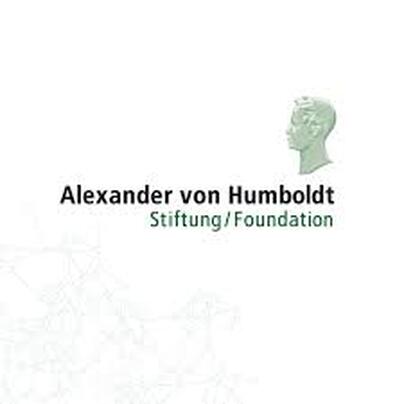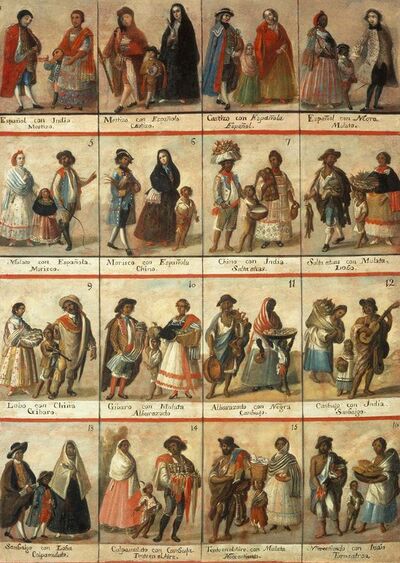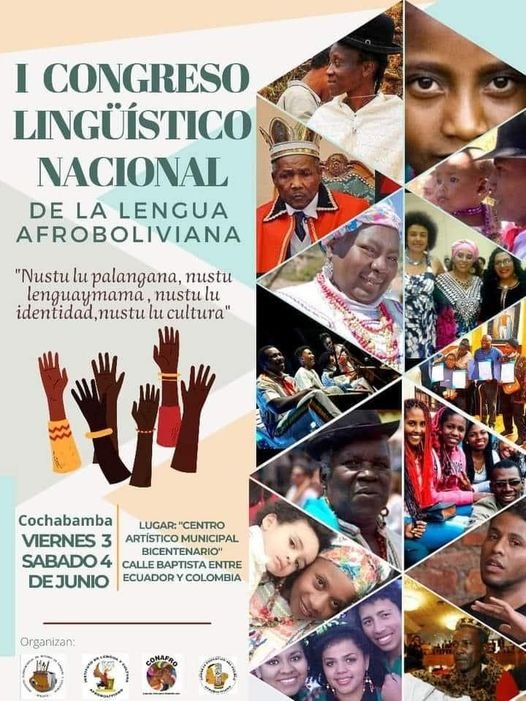Documenting traditional Afro-Yungueño, a severely endangered Afro-Hispanic language (funded by NSF Dynamic Language Infrastructure – NEH Documenting Endangered Languages Program)
This project focuses on traditional Afro-Yungueño (AY), an Afro-Hispanic vernacular spoken in rural villages scattered across the region of Los Yungas, Bolivia. It will result in the creation of a grammar of traditional AY, an annotated corpus of natural speech, a storybook that recovers Afro-Bolivian oral narratives, as well as the translation into this language of the well-known book The Little Prince (Saint-Exupéry 1943).
This project focuses on traditional Afro-Yungueño (AY), an Afro-Hispanic vernacular spoken in rural villages scattered across the region of Los Yungas, Bolivia. It will result in the creation of a grammar of traditional AY, an annotated corpus of natural speech, a storybook that recovers Afro-Bolivian oral narratives, as well as the translation into this language of the well-known book The Little Prince (Saint-Exupéry 1943).

The Afro-Hispanic Language Atlas (funded by the Humboldt Research Fellowship for Experienced Researchers, 2021-2024)
This project will create the first freely-accessible Afro-Hispanic atlas, which will remain available to the public for future corpus-based investigations into the structure of these languages. Each Afro-Hispanic variety studied will be represented with audio and video files. Speech samples will be cross-listed by geography, linguistic feature, and conversational topic. They will appear with written transcripts, dialectological annotations, and user-friendly navigational capabilities. The creation of this Afro-Hispanic website will result in a unique tool to carry out comparative research on these contact varieties.
This project is partially inspired by some recent ideas on the transmission of grammatical features in Creole formation: Sessarego, S. (2020). Not all grammatical features are robustly transmitted during the emergence of creoles. Nature: Humanities & Social Sciences Communications. 7, 130: 1-8.
This project will create the first freely-accessible Afro-Hispanic atlas, which will remain available to the public for future corpus-based investigations into the structure of these languages. Each Afro-Hispanic variety studied will be represented with audio and video files. Speech samples will be cross-listed by geography, linguistic feature, and conversational topic. They will appear with written transcripts, dialectological annotations, and user-friendly navigational capabilities. The creation of this Afro-Hispanic website will result in a unique tool to carry out comparative research on these contact varieties.
This project is partially inspired by some recent ideas on the transmission of grammatical features in Creole formation: Sessarego, S. (2020). Not all grammatical features are robustly transmitted during the emergence of creoles. Nature: Humanities & Social Sciences Communications. 7, 130: 1-8.
Language Policy and Activism in Afro-Latin America
During the past two decades, Afro-Hispanic languages have slowly entered the process of official recognition in Latin America. Papiamentu (Spanish creole from the Dutch Antilles), for example, became a language of instruction in 2003 in primary and secondary schools (Dijkhoff & Pereira 2010). Along the same lines of cultural enthusiasm, UNESCO proclaimed Palenquero (Spanish creole from Colombia) “Masterpiece of Oral and Intangible Heritage of Humanity” in 2005, and this language is now taught in local primary schools in the village of San Basilio de Palenque (Lipski 2010).
As for the other Afro-Hispanic varieties of the Americas, the process of official recognition has not gone that far … yet, but some steps have been taken in a similar direction. A clear example of this incipient process is the case of Afro-Bolivian Spanish, an Afro-Hispanic contact variety spoken in the Yungas, Department of La Paz (Bolivia). Recent publications on this contact variety (Lipski 2008; Sessarego 2011, 2014, 2021) have triggered an important feeling of language pride and revitalization among the members of the Afro-Bolivian community. Afro-Bolivians have recently taken a new look at their traditional language, which was previously regarded by many as a sort of embarrassing “broken Spanish”. The local attitudes toward this variety have greatly changed now. Afro-Bolivians have recently created the Instituto de Lengua y Cultura Afroboliviano with the aim of promoting and revitalizing their language, which is now perceived as a symbol of cultural and ethnic pride.
During the past six years, I have been working with a group of Afro-Bolivian activists on a radio program called Somos Afrobolivianos, which addresses the current debate on the linguistic and political status of Afro-Bolivian Spanish. This program, in tandem with the aforementioned Instituto de Lengua y Cultura Afroboliviano, is spreading linguistic awareness of this Afro-Hispanic variety and promoting its official recognition at the local and national level. An important step in this direction has been taken in September 2021, when I drafted--together with a team of Bolivian lawyers--the first legal proposal to support the use and preservation of Afro-Bolivian Spanish (Proyecto de ley municipal autonómica de protección del patrimonio lingüístico del pueblo afro de Coroico). This project has been well-received by local authorities and we expect it to be approved over the course of 2022.
This summer, in collaboration with this the Linguistics Summer School Bolivia (LSSB), I will offer a workshop in Bolivia to train native speakers of Afro-Bolivian Spanish in fieldwork methodologies. The goal is to provide the local community with the technical and theoretical skills required to carry out linguistic research on their own language. This will be the beginning of a long-term process meant to train the first generation of Afro-Hispanic linguists working on Afro-Hispanic languages.
This project critically reviews the process Afro-Bolivian Spanish is going through; it also analyzes the opportunities and threats that this variety may face, within the current political scenario, to acquire visibility, recognition and, potentially, a new role in education.

Afro-Mexican Speech: Race, Language and Identity (funded by the Netherlands Institute for Advanced Study, 2020-2021; Vice President For Research Grant 2020-2021 & Texas Global Seed Grant 2022-2023)
Exploring creole studies from a linguistic, sociohistorical and legal perspective, this project advances our knowledge of the subject by offering a cohesive approach in order to provide new theoretical insights into language contact, language variation and language change. In particular, it compares colonial slave laws and Black speech ecology across Mexico and the US. This project will consist of collecting production and perception data—to be analyzed both quantitatively and qualitatively—of Afro-Mexican Spanish in Veracruz, Guerrero and Oaxaca (Mexico), and Afro-Seminole Creole in Texas and Coahuila (Mexico) to cast light on the nature and origin of Afro-Mexican Speech and its implications for creole genesis.
Exploring creole studies from a linguistic, sociohistorical and legal perspective, this project advances our knowledge of the subject by offering a cohesive approach in order to provide new theoretical insights into language contact, language variation and language change. In particular, it compares colonial slave laws and Black speech ecology across Mexico and the US. This project will consist of collecting production and perception data—to be analyzed both quantitatively and qualitatively—of Afro-Mexican Spanish in Veracruz, Guerrero and Oaxaca (Mexico), and Afro-Seminole Creole in Texas and Coahuila (Mexico) to cast light on the nature and origin of Afro-Mexican Speech and its implications for creole genesis.

Discriminación racial y derechos humanos:
Avances y desafíos de España en el contexto internacional
Este trabajo se centra en el análisis pormenorizado del derecho a la igualdad y a la no discriminación racial en el ordenamiento jurídico español. La investigación de este derecho se aborda desde un punto de vista holístico, que enfoca su estudio en el ámbito internacional y que presta particular atención a los textos producidos por la Organización de Naciones Unidas (ONU), el Consejo de Europa (CoE), y la Unión Europea (UE). Además, se realiza un análisis detenido de las observaciones del Comité para la Eliminación de todas las Formas de Discriminación Racial (CEDR), de las resoluciones del Comité de Derechos Humanos (CDH), de las sentencias del Tribunal Europeo de Derechos Humanos (TEDH) y del Tribunal de Justicia de la Unión Europea (TJUE), de los reportes de la Comisión Europea contra el Racismo y la Intolerancia (CERI), así como de los estudios desarrollados por la Agencia de los Derechos Fundamentales (ADF) a nivel europeo. Este examen tiene como objetivo analizar, desde un punto de vista crítico, el impacto que el sistema internacional ha tenido en el ordenamiento jurídico nacional en cuanto a cuestiones relativas a la protección de los ciudadanos frente a conductas discriminatorias.
Este proyecto efectúa una reflexión omnicomprensiva de la normativa, jurisprudencia y sistema de vigilancia relacionados con la discriminación racial. En particular, se analizan las medidas normativas relacionadas con el principio de igualdad de trato y la reciente reforma del Código Penal (CP) de 2015. Asimismo, se estudian las sentencias del Tribunal Constitucional (TC), del Tribunal Supremo (TS), de las Audiencias Provinciales (AAPP) y de los Juzgados de lo Penal (JJPP) sobre casos relacionados con tres aspectos específicos de la discriminación racial: los comportamientos racistas ejecutados por miembros de las fuerzas públicas, así como el discurso racista en algunos medios de información, y la tutela de la diversidad y pluralidad cultural de los grupos minoritarios. Además, se evalúa la labor del Observatorio Español del Racismo y de la Xenofobia (OBERAXE), el órgano de vigilancia que colabora a nivel nacional con la ADF europea, y que tiene funciones de estudio y análisis, y la capacidad para elevar propuestas de actuación en materia de lucha contra la discriminación.
Finalmente, el proyecto ofrece una evaluación de los avances y desafíos que caracterizan a la España contemporánea en cuanto a discriminación racial, y aporta resultados que contribuyen a reforzar una interpretación más homogénea y garantista del derecho a la igualdad y a la no discriminación a nivel nacional y europeo.
Avances y desafíos de España en el contexto internacional
Este trabajo se centra en el análisis pormenorizado del derecho a la igualdad y a la no discriminación racial en el ordenamiento jurídico español. La investigación de este derecho se aborda desde un punto de vista holístico, que enfoca su estudio en el ámbito internacional y que presta particular atención a los textos producidos por la Organización de Naciones Unidas (ONU), el Consejo de Europa (CoE), y la Unión Europea (UE). Además, se realiza un análisis detenido de las observaciones del Comité para la Eliminación de todas las Formas de Discriminación Racial (CEDR), de las resoluciones del Comité de Derechos Humanos (CDH), de las sentencias del Tribunal Europeo de Derechos Humanos (TEDH) y del Tribunal de Justicia de la Unión Europea (TJUE), de los reportes de la Comisión Europea contra el Racismo y la Intolerancia (CERI), así como de los estudios desarrollados por la Agencia de los Derechos Fundamentales (ADF) a nivel europeo. Este examen tiene como objetivo analizar, desde un punto de vista crítico, el impacto que el sistema internacional ha tenido en el ordenamiento jurídico nacional en cuanto a cuestiones relativas a la protección de los ciudadanos frente a conductas discriminatorias.
Este proyecto efectúa una reflexión omnicomprensiva de la normativa, jurisprudencia y sistema de vigilancia relacionados con la discriminación racial. En particular, se analizan las medidas normativas relacionadas con el principio de igualdad de trato y la reciente reforma del Código Penal (CP) de 2015. Asimismo, se estudian las sentencias del Tribunal Constitucional (TC), del Tribunal Supremo (TS), de las Audiencias Provinciales (AAPP) y de los Juzgados de lo Penal (JJPP) sobre casos relacionados con tres aspectos específicos de la discriminación racial: los comportamientos racistas ejecutados por miembros de las fuerzas públicas, así como el discurso racista en algunos medios de información, y la tutela de la diversidad y pluralidad cultural de los grupos minoritarios. Además, se evalúa la labor del Observatorio Español del Racismo y de la Xenofobia (OBERAXE), el órgano de vigilancia que colabora a nivel nacional con la ADF europea, y que tiene funciones de estudio y análisis, y la capacidad para elevar propuestas de actuación en materia de lucha contra la discriminación.
Finalmente, el proyecto ofrece una evaluación de los avances y desafíos que caracterizan a la España contemporánea en cuanto a discriminación racial, y aporta resultados que contribuyen a reforzar una interpretación más homogénea y garantista del derecho a la igualdad y a la no discriminación a nivel nacional y europeo.


